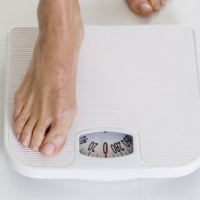Weeks leading up to surgery
a. Alcohol causes gastric irritation and can cause liver damage. During periods of rapid weight loss the liver becomes especially vulnerable to toxins such as alcohol. You may find that only a couple of sips of wine can give you unusually quick and strong effects of alcohol intolerance.
b. In addition, alcoholic beverages are high in empty calories and may cause "dumping syndrome."
c. For these reasons, we recommend complete abstinence from alcohol for one year after surgery and avoiding frequent consumption thereafter.
2. Work and Disability
a. Typically, bariatric surgery patients can expect to return to work in about two to four weeks, however this can vary from person to person. This may vary greatly. The time you take from works depends on many things, including the kind of work you do, your general state of health, how badly your work needs you, how badly you need you need your work (i.e. the money), your general state of motivation, the surgical approach (laparoscopic vs. open) and your energy level.
b. It is important to remember that you are not just recovering from surgery, but you are eating very little and losing weight rapidly. We caution you to not rush back to full-time work too quickly. The first few weeks are a precious time to get to know your new digestive system, to rest, exercise and meet with other post-operative patients in support group meetings. If financially feasible, take this time to focus on your recovery.
c. You may not wish to tell the people you work with what kind of surgery you are having. It is perfectly appropriate to tell as much or as little to your employer as you would like. Although you do not need to tell your employer that you are having weight loss surgery, it is recommended to reveal that you are having major abdominal surgery. Explain that you need two or more weeks to recover, especially if you would like to have some form of financial compensation during your absence.
d. Your employer should have the relevant forms for you to complete. You may want to indicate that you will not be able to do any heavy lifting for several months after surgery.
The Day Before
1. Bowel Preparation before Surgery
a. You will be given instructions for bowel preparation at your pre-operative appointment. It is important that you follow these instructions completely.
b. The day before surgery, you may drink only clear liquids. Clear liquids include water, coffee, tea, apple juice, grape juice, cranberry juice, bouillon, broth, clear popsicles, clear soda and gelatine.
c. After midnight the day before your surgery, you must take nothing by mouth except medicines that have been approved by the anaesthesiologist and surgeon. Your stomach must be empty at the start of the procedure to reduce the risk of aspiration.
2. If You is ill Before Surgery
a. Should you develop a cold, persistent cough, fever, skin breakdown or any changes in your condition during the days before your surgery, please notify the surgeon immediately, as you will need to be re-evaluated for surgical readiness. You need to be in the best possible shape for anaesthesia. Scheduling can be adjusted to your condition, if necessary.
Related Articles
-
Strip That Fat - Life Changing Weight Loss
Life Changing Weight Loss Fat loss and weight loss are not the same th
-
Fat Burning Furnace - Lose Weight Fast Exercises that are Only 15 Min Long!
Fat Burning Furnace - Lose Weight Fast Exercises that are Only 15 Min
-
Sleep – The Forgotten Piece of Weight Loss Puzzle.
As unorthodox as it might sound , medical evidence shows us a fascinat
-
Tacfit Commando Login - Tacfit Commando Review
Do you ever think about that if there is way to make yourself fit? Do
-
Shopping for an Effective Cellulite Treatment Online
Cellulite can happen to the best of us, and even if you are in really
-
Lose Weight And Dieting Can Be So....
Dieting is not only NOT the most effective way to lose pounds ; its th
- DON'T MISS
- Healthy Way of Removing Fat and Lose Weight Quickly
- Winsor Pilates Can Be Very Effective For Weight Loss
- Effective and Healthy Diet Plans of 2014
- 3 Daily Habits To Shed Those Extra Pounds!
- Phen375: Does it Work, Scam, and Customer Reviews
- The Benefits of the African Mango
- Weight Loss Exercise Tips: Using the Best Cardio Machines
- Fat Burning Furnace - The Most Popular System for Weight Loss That Is Worth Your Time!
- Weight Loss Surgery and IVF
- Natural Herbs For Weight Loss - 12 Most Common




